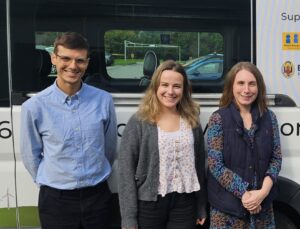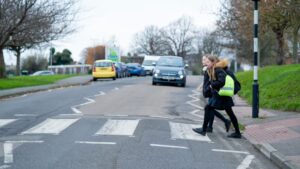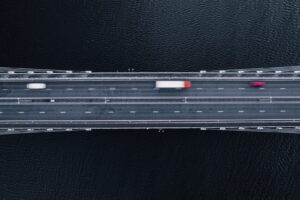Cranfield University is part of a new national hub focused on rapidly decarbonising transport in the UK using digital twinning. The TransiT research hub is a collaboration of six universities and 67 industry partners, jointly led by Heriot-Watt University in Edinburgh and the University of Glasgow.
TransiT will identify the lowest cost, least risky and most energy-efficient way to decarbonise transport by developing a digital twinning approach. Cranfield’s role in the project is in examining aviation, initially looking at commercial goods being transported but with the potential to include passenger aircraft in future.
Cranfield’s research will look at every aspect of the journey goods take, from the point of despatch to their final destination. That includes couriers and delivery vehicles and how those can be optimised to decarbonise the whole of the delivery journey, not only the time spent in the aircraft.
The hub has already secured £20 million in funding from the Engineering and Physical Sciences Research Council (EPSRC), the main funding body for engineering and physical sciences research in the UK.
Another £26million in funding is being provided by stakeholders across the digital, energy and transport sectors, including transport operators, regulators, vehicle makers, technology companies and energy suppliers.
Digital twinning links computer models to the real world in a timely manner. Large volumes of data are rapidly processed to test scenarios, identify problems and find solutions. The TransiT team expect their testing to include elements of a future decarbonised UK transport system that doesn’t yet exist – for example, electric road systems and the widescale use of hydrogen as a sustainable fuel. Digital twinning allows different transport configurations to be tested and developed much faster than real world engineering projects, until the lowest cost pathway to net zero carbon emissions is identified.
“The central question we’re aiming to answer with TransiT is how we decarbonise the entire transport sector” said Professor John Ahmet Erkoyuncu, Head of the Centre for Digital Engineering and Manufacturing at Cranfield University. “We have to look at the combination of all modes of transport to understand how everything can work together more efficiently. There are so many factors to consider, even down to whether delivery trucks are half empty or how urgent delivery is and whether multiple deliveries could be consolidated.
“The great thing about the digital twin approach is that we can run multiple simulations in the time it would take to do just one trip in the real world. That gives us the ability to not only look at different ways of doing things, but to be reactive and make changes to build resilience into the system.”
Government policymakers will benefit from TransiT by being able to see what intended and unintended consequences, across a broad timespan, could result from their policy decisions across a range of future scenarios. Transport users including passengers and commuters will also benefit from research to identify and help them make decisions about the most sustainable travel choices on a local, regional and national level.
PIC-.gov.uk
























